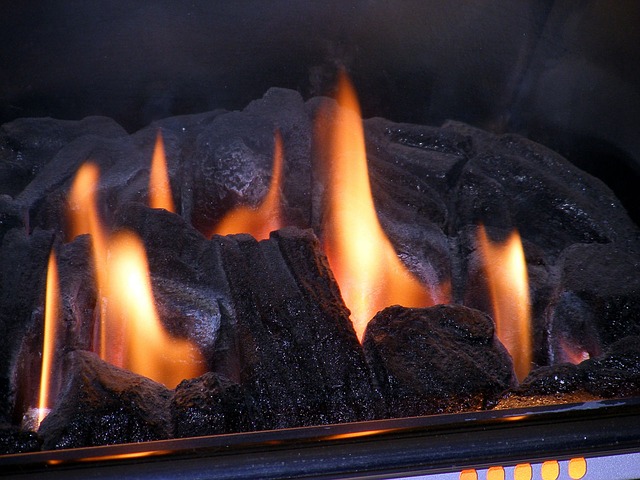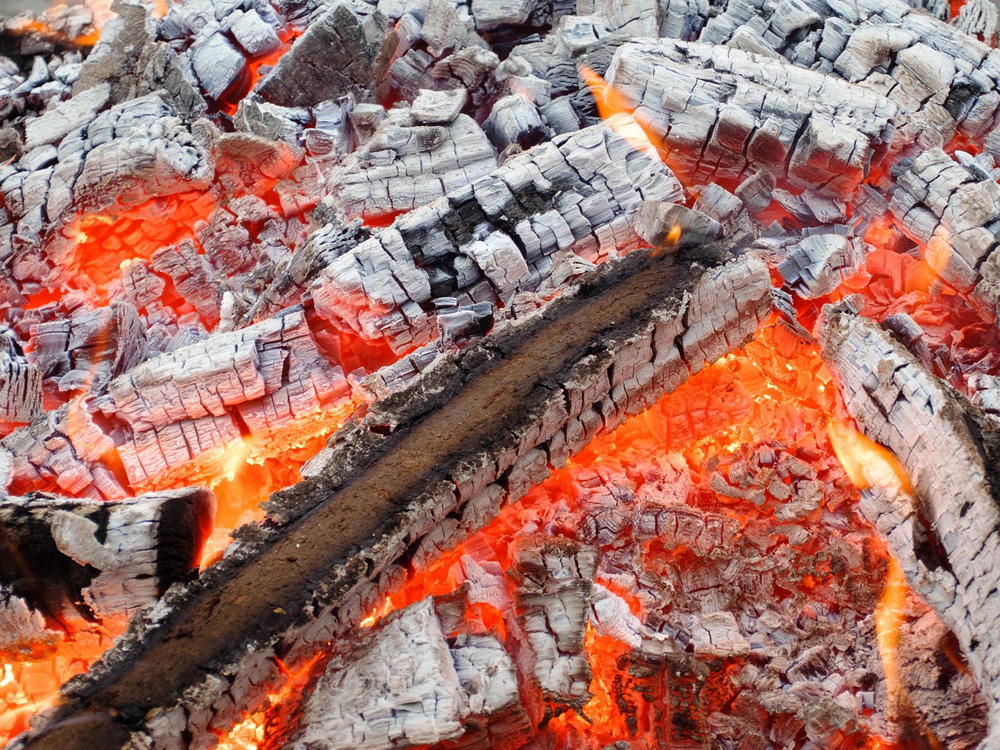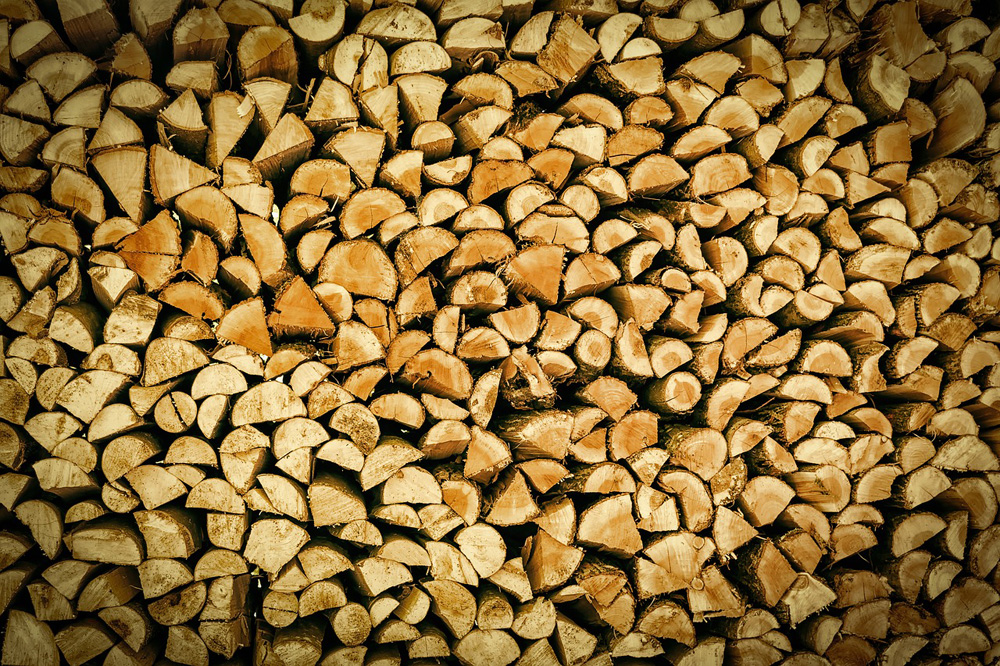How to Choose Between Gas and Wood for My Fireplace and My Home
Gas or wood? That is the question that divides us. Forget cats vs dogs, coke vs pepsi, or whether you roll your toilet paper over the top or under the bottom. None of that stuff affects your life the way the decision to use gas or wood does.
The gas vs wood decision affects your wallet, your air quality, and the world around you. (Okay, maybe cats vs dogs does too).
If you’re looking to upgrade your fireplace or are home-shopping, and don’t want to regret your fireplace of choice after owning it for several years, here’s your guide to choosing between gas and wood fireplaces.

Gas vs Wood? Choose Gas If…
-
You Are Too Busy to Mess with a Fireplace
Gas fireplaces take way less time out of your life than wood ones. You just flip a switch, and the fire’s on. No finding wood to buy or chop. No lugging it in the house. No kindling to deal with, or matches, or newspapers. And little to no cleaning – in your home or in a chimney (and you don’t even need a chimney for gas, just a vent – more on that in a bit).
So if your life is very busy and you just want the warmth or beauty of a fireplace without the hassle, gas is a no-brainer.
-
You Love Trees
No trees were harmed in the making of or use of your gas fireplace. Simply put, to use a wood fireplace, you have to cut down trees. And so does everyone else using them. If that bothers you or you feel it’s a waste of a hard-to-replace natural resource, then wood fireplaces are not for you.
-
Energy Efficiency Is Your Middle Name
Gas fireplaces are more energy efficient than wood. There’s no comparison here. To get the same amount of heat from a wood fireplace costs much more than for gas (unless you have a free wood supply), and you lose a lot of heat up the chimney too. So you’ll have to burn a lot more wood to get the same amount of heat as you would from a gas fireplace.
-
You Hate Cleaning
Cleaning a wood fireplace takes a lot of work. After every fire, you have to clean out all the ash and dispose of it. It’s dusty. It’s dirty. It makes you cough and sneeze. If you have glass doors, you have to clean those. And the hearth. And every so often, the chimney itself, or your risk of a chimney fire from creosote increases with each passing year.
You do have to clean a gas fireplace too, but not after every fire. Very little debris or residue shows up. And what cleaning does need to happen, about once a year, is best done by a professional. So in effect, you never have to clean your gas fireplace. But you always have to clean your wood one. Never or always. That’s your choice.
-
You Like Money
This one isn’t so simple, so bear with us for some explanation. In general, a gas fireplace will be about three times cheaper to use than a wood one. Paying for the amount of gas it takes to heat your home with a fireplace is much less than the cost of paying for wood. It goes back to the efficiency question, as well as the simple cost of these resources. Wood is expensive, for how much you need for consistent fires.
That said, there are some variables that can make this swing a lot of directions, so consider the following:
- If natural gas is very costly in your area, the cost of using your gas fireplace will go up
- If wood is very expensive to purchase where you live (like in Seattle), the cost of a wood fireplace will be even higher
- If your home has no gas lines in the street, you’d have to get a tank and pay for all the installation. That greatly increases your setup costs, and invites a new set of issues you have to deal with
- If your street has gas lines, but your home isn’t set up with a gas fireplace, your cost of installation will go up substantially
- If you have an inside track on free wood and don’t mind chopping it yourself (or know a friend who knows a friend), your cost of wood burning will go way down
So – the cost question really depends on a lot of factors. You’ll have to figure out what applies to your situation.
-
You Like Clean Air
Wood burns much dirtier than gas, and pollutes the air at a far higher rate – 99% more according to this article.
-
You Like Freedom
If you live in certain places, sometimes poor air quality makes the government put out a “burn ban.” In those situations, you will be fined if you light up a wood fire – no matter how cold it is outside. And there’s no hiding your smoke.
When there’s a burn ban in place, where there’s smoke, there’s a hefty fine from the government. A gas fireplace gives you the freedom to have a fire when you want one, no matter what.
Don’t laugh. That wood pile sitting in the backyard for the past year (because you want to be sure your wood is nice and dry before burning it)? It’s spider heaven. If you don’t want to deal with spiders, you can always send your teenager out to bang the bugs off the wood in the dark and cold. But then you run the risk of traumatizing them for life when they walk back in the house with a big black spider crawling up their leg.
And, you’ll have created a new gas fireplace customer for life…
Gas vs Wood? Choose Wood If…
-
The Cost Works Out In Your Favor
See Reason #5 up above in the gas section. If natural gas isn’t available in your home, then wood is probably going to be cheaper. Or, if your living situation is such that you can get free or very cheap and consistent supplies of wood, then wood will be less costly.
Again, the cost question depends on a lot of variables. Look at your situation to see if wood works out in your favor.
-
You Like the Beauty of a Wood Fire
Fake logs have come a long way, and from a distance, it can be hard to tell the difference if you don’t stare at your gas fireplace for too long. But in reality, there’s no replacing the beauty of a wood fire.

If you own a gas fireplace and like to curl up in front of the fire, you’ll be staring at the exact same configuration of logs for years. Get used to it.
-
Nothing Beats the Sounds and Smells of a Wood Fire
Gas doesn’t crackle. The flame generally looks about the same. There’s no interesting or unexpected coals or colors. And, gas can smell – if you’re not venting properly – but it’s not a nice smell in that case. This is a rare and unlikely problem that can be fixed. But, wood burning smells great (as long as you use the damper properly).
If you like having the campfire effect in your home, then wood fireplaces are the way to go.
-
You Enjoy the Labor of Love that is a Wood Fire
If you enjoy making a fire and the work that goes into it, and that’s more important than the convenience of gas, then that’s a lifestyle choice you will want to consider. Chopping wood can be gratifying. Arranging logs and getting it to light can be a fun accomplishment and something to teach your kids. Pushing them around as it burns down and adding more wood to the fire is fun too.
The experience of a real wood fireplace can’t be replicated with gas. If that experience has value for you, then go for wood.
Should You Choose Gas or Wood for Your Fireplace?
Hopefully you’ve had fun reading this and have what you need to make your decision.
Gas vs wood is a big decision that will affect your life, your time, and your budget for years to come. If you have more questions about gas fireplaces, you can always give us a call and we’ll be happy to answer!
But one more word about gas venting. If you want to avoid the ‘smell’ problem of gas, you want direct vent fireplaces, not B-vent. Even with B-venting you shouldn’t have a smell problem. If you do, that means you have either an improper combustion situation or a venting flaw. Neither of these are common. B-venting was more common in years past, but few new fireplaces use it today.
More than the smell though (which again is a rare problem), direct venting is more efficient than B-venting. That’s the main reason most of the industry has switched to direct venting.
Learn more about direct venting and other fireplace installation questions.
Wondering about ventless gas fireplaces? We recommend against them. See why.












